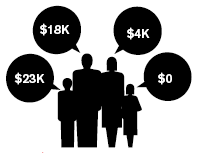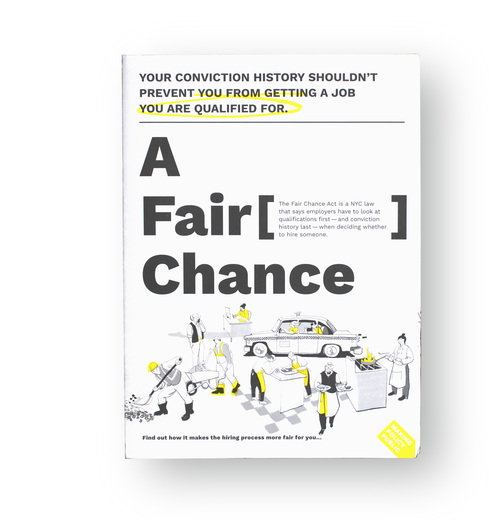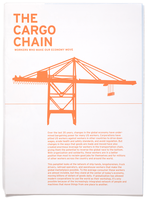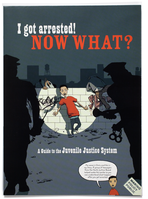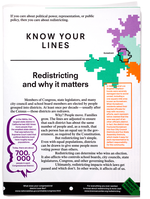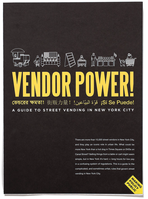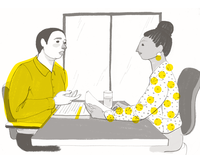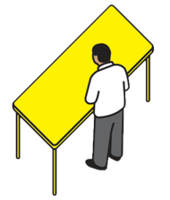 A Fair Chance
A Fair Chance
Finding a job after you’re released from prison is difficult. Some employers discriminate against people with criminal records, and explaining a gap in your resume is tricky. New York City recently passed the Fair Chance Act to protect formerly incarcerated New Yorkers from employment discrimination, but figuring out what employers can and can’t do under the new legislation can be confusing. What is and isn’t legal for employers to ask when hiring? What are your options if you think that an employer has treated you unfairly because of your criminal record?
CUP teamed up with VOCAL-NY, designer Lizania Cruz, and illustrator Natalie Ramirez to create A Fair Chance, a guide to help formerly incarcerated people understand their rights under the Fair Chance Act, advocate for themselves, and hold employers accountable. The guide gives steps that people can take to strengthen their employment applications and connect to professional services to support them.
- $8.00


